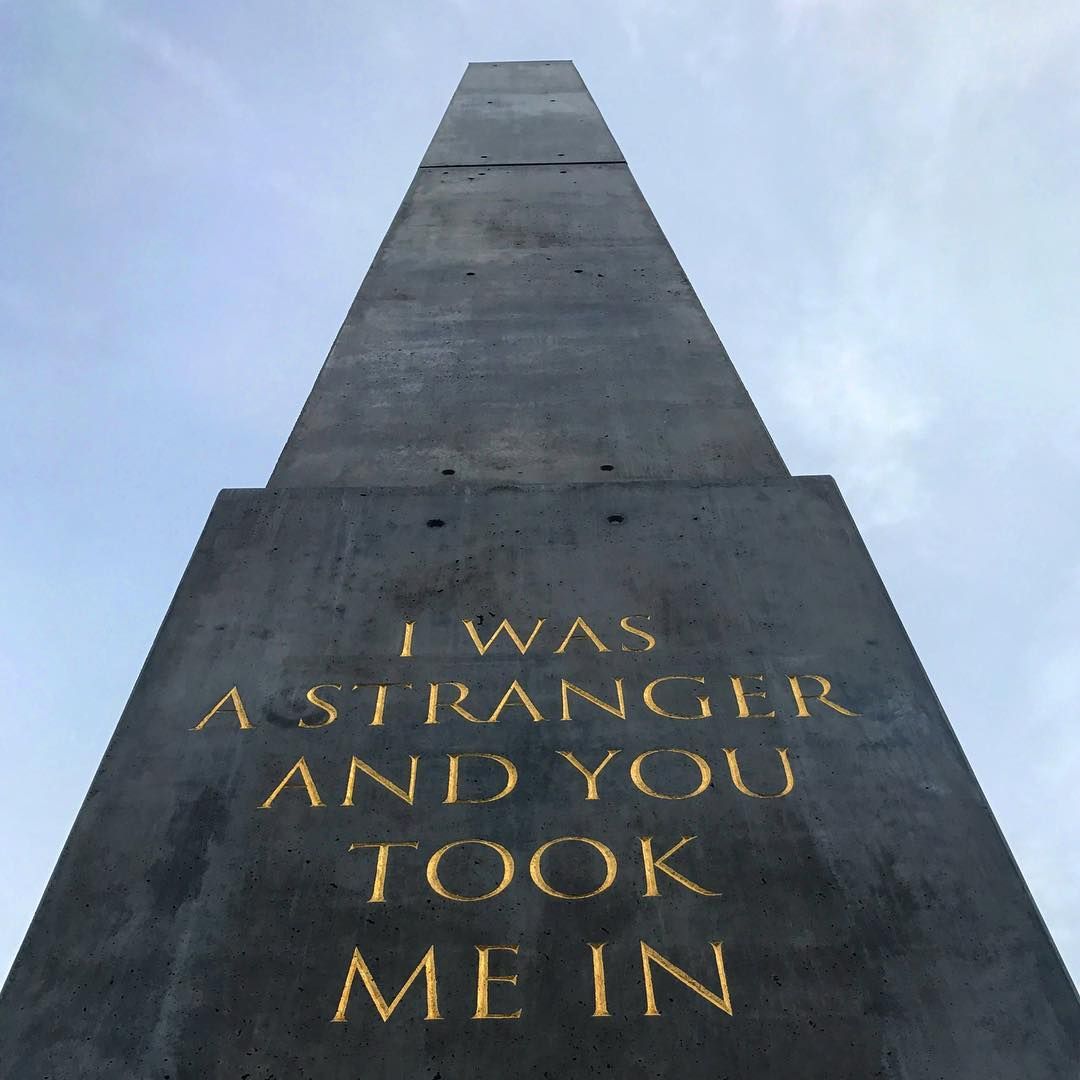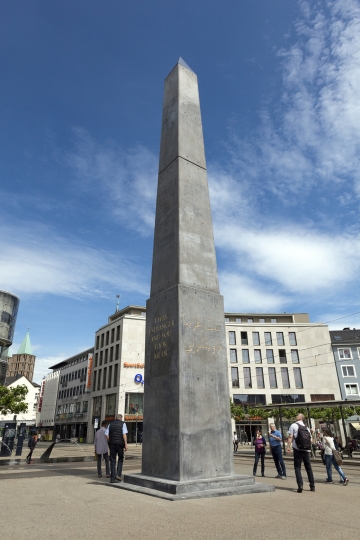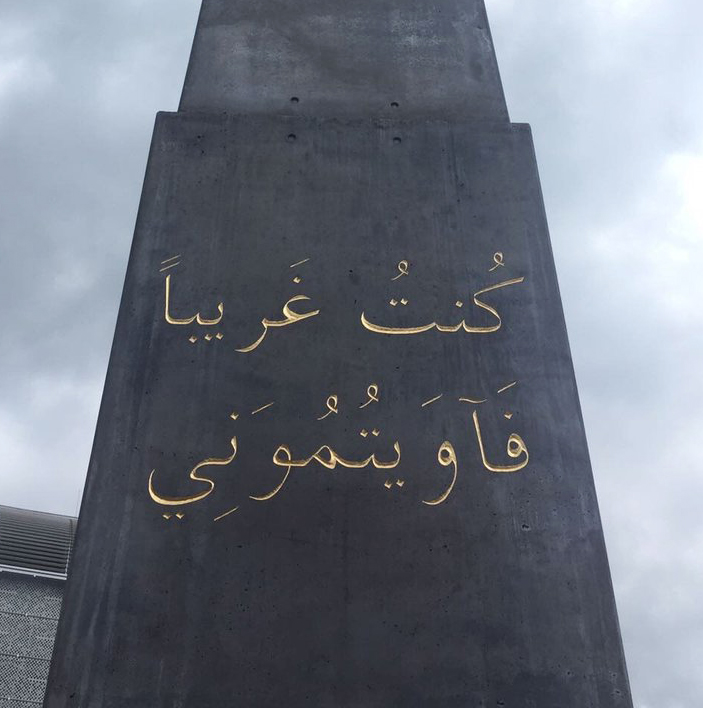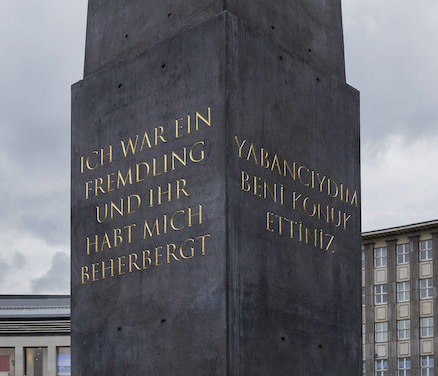January 2: Develop a Generous Spirit
♫ Music:
Thursday, January 2
Title: DEVELOP A GENEROUS SPIRIT
Scripture: Romans 12:13, Hebrews 13:16, Matthew 5: 42, Ephesians 4:28
Supply the needs of the saints, extend hospitality to strangers.
Do not neglect to do good and to share what you have, for such sacrifices are pleasing to God.
Give to everyone who asks you for something. Don’t turn anyone away who wants to borrow something from you.
Use your hands for good hard work, and then give generously to others in need.
Poetry:
The Guest
by Wendell Berry
Washed into the doorway
by the wake of traffic,
he wears humanity
like a third-hand shirt
–blackened with enough
of Manhattan’s dirt to sprout
a tree, or poison one.
His empty hand has led him
where he has come to.
Our differences claim us.
He holds out his hand,
in need of all that’s mine.
And so we’re joined, as deep
as son and father. His life
is offered me to choose.
Shall I begin servitude
to him? Let this cup pass.
Who am I? But charity must
suppose, knowing no better,
that this man is a man fallen
among thieves, or come
to this strait by no fault
–that our difference
is not a judgment,
though I can afford to eat
and am made his judge.
I am, I nearly believe,
the Samaritan who fell
into the ambush of his heart
on the way to another place.
My stranger waits, his hand
held out like something to read,
as though its emptiness
is an accomplishment.
I give him a smoke and the price
of a meal, no more
–not sufficient kindness
or believable sham.
I paid him to remain strange
to my threshold and table,
to permit me to forget him—
knowing I won’t. He’s the guest
of my knowing, though not asked.
DEVELOP A GENEROUS SPIRIT
An idyllic childhood, mine was not. Despite experiencing the ramifications of emotional disorder, I was fortunate enough to have the counterbalance of a parent who would never let her sons forget the lesson of Luke 12:48, “To whom much is given, much will be required.” Each new day was another opportunity to grow beyond previous heartache, specifically so that we could serve Him – which meant serving others.
The verses for reflection today all focus on the responsibility to share, to give, to sacrifice, to not turn away those in need, even at cost to ourselves. But anyone who has ever made a New Year’s resolution knows not all good habits are easily enacted. Developing one’s propensity for any skill requires, at a minimum, an awareness of the need to improve and a dedication to continued practice. Regardless of the starting point, we are all capable of improving our spirit of generosity, but it must be cultivated with diligence until it becomes habitual.
And yet, the giving and receiving of material items is such a culturally accepted norm during the holiday season that it borders on obligation. However, a gift is given willingly, as an act of choice. It is a form of favor, as there is no requirement of the giver to bestow it. And favor by its definition is not fair; it is an act of kindness beyond what is considered expected or standard. Why is it that the act of giving to those who are suffering, which is a year round affair, receives far less fanfare?
I am forced to ask myself, “How often have I withheld kindness from someone, because I was judgmental? Have I held back assistance because I questioned if the giving of my resources would be utilized properly? Did I not give because it somehow inconvenienced me?” Or, perhaps more simply, “Was I too busy to see You when You were in front of me?”
Das Fremdlinge und Flüchtlinge Monument is an obelisk less than three years old in the German city of Kassel, yet already has a history of controversy. The monument was taken down and moved without consent of the artist because it irked political conservatives in a country impacted by the refugee crisis. The only words inscribed on it, in four languages, are from Matthew 25:35 “I was a stranger and you took me in.” Ironically, in its own displacement, the work more closely represents the plight of those it seeks to represent. May other ironies not be lost.
Prayer:
Father, I thank you for your forgiveness of my selfishness, and the ways in which I have not shown mercy and grace to others. I ask that you continue to uncover areas of my heart and mind where I might stand to be more generous to those in need. Help me not to miss the opportunities you lay before me to do as you have called. As we have been shown kindness beyond what is due, let us also share favor with those who we may not think we are obligated to help.
Amen
Zachary Bortot
Assistant Professor of Theatre
Biola University
For more information about the artwork, music, and poetry selected for this day, we have provided resources under the “About” tab located next to the “Devotional” tab.
About the Artwork:
Das Fremdlinge und Flüchtlinge Monument
(Monument for Strangers and Refugees)
Olu Oguibe
Concrete with gold inscriptions on four sides
3 × 3 × 16.3 m
Konigsplatz (King’s Square), Kassel, Germany
Monument for Strangers and Refugees is a commissioned public sculpture by Nigerian-born American artist Olu Oguibe designed for Documenta 14 (2017), a contemporary art fair held every five years. The work was designed as a site-specific piece for the Konigsplatz (King’s Square) in Kassel, Germany, which is a pedestrian zone in the city center. Each side of the monumental concrete obelisk is inscribed in gold with “I was a stranger and you took me in,” from Matthew 25:35, in German, English, Arabic, and Turkish. Oguibe was awarded the Arnold Bode Prize in July 2017 for the work. The Konigsplatz (King’s Square) has been the site of numerous political demonstrations and in late 2018, after months of negotiations, the city of Kassel opted to indefinitely remove Monument to Strangers and Refugees, reportedly due to pressure from the rightwing anti-immigrant party, Alternative for Germany.
https://news.artnet.com/art-world/olu-oguibe-kassel-obelisk-1369624
About the Artist:
Olu Oguibe (b. 1964) is a Nigerian-born American artist and intellectual. A Professor of Art and African-American Studies at the University of Connecticut, Storrs, Oguibe is a senior fellow of the Vera List Center for Art and Politics at the New School, New York City, and the Smithsonian Institution in Washington, DC. He is also an art historian, art curator, and leading contributor to post-colonial theory and new information technology studies. In 1986, he earned a degree in Fine and Applied Arts from the University of Nigeria and in 1992 he received a PhD in art history from the School of Oriental and African Studies University of London. To date his art has been shown in major museums and galleries around the world, including the following: the Whitney Museum of American Art; the Whitechapel Gallery and the Barbican Center in London; Migros Museum, Zurich; the Irish Museum of Modern Art; and Bonnefantenmuseum, Maastricht, among many others.
https://africa.si.edu/exhibits/olu.htm
About the Music:
“Too Good” from the album Sentimental Creatures
Lyrics:
It is not as we've seen
It is not as we've read
It is not as they said
How we need to forget
and we need to reset
and be like children again
Are you hungry?
and have no money?
You can sit at this table
Are you thirsty?
and unworthy?
You can draw from this well
Are you weak? Are you poor?
Are you wanting for more
in the quiet of your heart?
To yourself you say,
"I wish someone would pass my way
and give me a new start."
Sweetheart, stopping cutting your sweet arms, no hope
Smoking dope and drinking your life away
Let's dance and sing
Let's eat from the tree
Come down to the river with me
It
May
Be
Too good to be understood
but it's not too good to be true
It may be too good to be understood
but it's not too good to be true
From the dust we came
to the dust we all will go
We brought nothing with us
We take nothing home, heaven knows
Keep in mind it'll take a little time
But darling you're gonna find where you came from
Don't let your eyes deceive your heart
believe that the best is yet to come
It may be too good to be understood
but it's not too good to be true
It may be too good to be understood
but it's not too good to be true
He may be too good to be understood
but he's not too good to be alive.
About the Composer/Performer:
Jess Ray is a singer/songwriter and producer from North Carolina. In May 2015 Jess released Sentimental Creatures, a full-length record which features her on everything from guitar to the trumpet. Sentimental Creatures is an enchanting blend of indie pop vibes and lyric-driven sensibility, a new brand of music she’s affectionately dubbed “friendly folk.” Intensely spiritual yet deeply real, her songs soar with joy and hope without ignoring the reality of our human struggle. In 2018, Jess headed back to the studio to record her sophomore album, PARALLELS + MERIDIANS which feels like new territory for the artist, whose writing has ventured much further into the relationships between people. It’s this connection, to one another as well as our connection to God, that dominates the landscape of her newest album.
https://www.jessraymusic.com/
About the Poet:
Wendell Erdman Berry (b. 1934) is an American novelist, poet, environmental activist, cultural critic, and farmer who was educated at the University of Kentucky, where he became Distinguished Professor of English in 1971. The intensity of his writing's involvement with the human and natural characters of his native locality has gained Berry recognition as one of the leading writers of the twentieth century. A prolific author, he has written many novels, short stories, poems, and essays. He is an advocate of Christian pacifism, as shown in his book Blessed Are the Peacemakers: Christ's Teachings About Love, Compassion and Forgiveness. He states that the theme in his writing is "that all people in the society should be able to use the gifts that they have, their natural abilities, and they ought to use them responsibly for their benefit as individuals and as a community." Berry was named the recipient of the 2013 Richard C. Holbrooke Distinguished Achievement Award, an annual U.S. literary award recognizing the power of the written word to promote peace.
https://www.britannica.com/biography/Wendell-Berry
About the Devotion Writer:
Zachary Bortot
Assistant Professor of Theatre
Biola University
Professor Zachary Bortot is the Artistic Director of Biola University’s Theatre Program. He last appeared as Horatio in The Courtyard Shakespeare Festival’s production of Hamlet. This season for Biola he directed Lauren Gunderson’s Silent Sky and is serving as a producer for The Last Five Years, The Music Man, and The Musical Comedy Murders of 1940. His professional interests include immersive theatre, Theatre of Cruelty, and the use of augmented and virtual reality in theatrical performance. He has a passion for enabling other performance artists to explore the creative vocational endeavors to which the Master Artist has called them.



